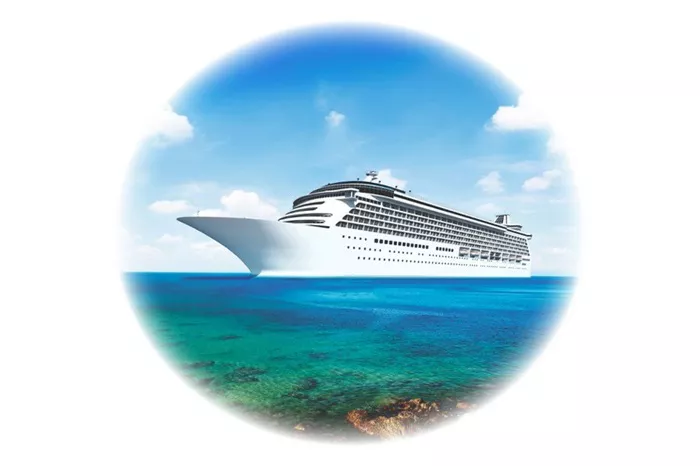Holiday insurance, also known as travel insurance, is a crucial aspect of planning any trip. It provides coverage for various scenarios that could disrupt your travel plans or impact your well-being while you’re away from home. Understanding when to purchase holiday insurance can make a significant difference in ensuring that you are adequately protected. This comprehensive guide will explore the optimal timing for buying holiday insurance, the types of coverage available, and factors to consider when making your decision.
Understanding Holiday Insurance
Holiday insurance is designed to cover unforeseen events that could affect your trip. These events may include medical emergencies, trip cancellations, lost or stolen luggage, and travel delays. There are several types of coverage available, including:
Medical Expenses Coverage: Covers costs related to medical emergencies, including hospital stays, medical treatments, and emergency evacuations.
Trip Cancellation Coverage: Reimburses you for non-refundable expenses if you need to cancel your trip due to a covered reason such as illness or a family emergency.
Baggage and Personal Belongings Coverage: Provides compensation for lost, stolen, or damaged luggage and personal items.
Travel Delay Coverage: Offers reimbursement for additional expenses incurred due to travel delays, such as accommodation and meals.
Optimal Timing for Purchasing Holiday Insurance
The timing of purchasing holiday insurance is crucial to ensure comprehensive coverage. Here’s a detailed look at the best times to buy insurance for your trip:
1. Immediately After Booking Your Trip
Pre-Existing Medical Conditions Coverage: Many policies offer coverage for pre-existing medical conditions if you purchase insurance soon after booking your trip. Waiting too long could result in a denial of coverage for these conditions.
Trip Cancellation Protection: Buying insurance immediately after booking your trip provides protection in case you need to cancel for a covered reason. If you wait until closer to your departure date, you may miss out on this crucial coverage.
Price Lock-In: Purchasing insurance early can sometimes lock in a lower premium, especially if you are buying a comprehensive plan.
2. Before Making Non-Refundable Payments
Secure Your Investment: If you have already made non-refundable payments for flights, accommodations, or tours, it’s wise to buy insurance before these payments are due. This ensures that you are protected against potential cancellations or disruptions.
Coverage for Deposits: Insurance can cover deposits made for activities or services that are non-refundable. Securing this coverage early helps protect your financial investments in case you need to cancel.
3. When Traveling to High-Risk Destinations
Destination-Specific Risks: If you are traveling to regions prone to natural disasters, political instability, or health risks, it is advisable to purchase insurance as early as possible. This ensures that you are covered for any potential issues specific to the destination.
Comprehensive Coverage: Some destinations may require additional coverage options, such as evacuation coverage or higher medical limits. Early purchase allows you to tailor your policy to the specific risks associated with your destination.
4. During Peak Travel Seasons
Avoiding Peak Season Disruptions: During peak travel seasons, such as holidays or school vacations, insurance providers may experience higher demand. Purchasing insurance early ensures that you are not caught in a situation where coverage is unavailable or limited.
Early Booking Advantages: Booking insurance well in advance during busy periods helps in avoiding last-minute stress and ensures that you have adequate coverage in place.
See Also: Can You Get Holiday Insurance While on Holiday?
Factors to Consider When Buying Holiday Insurance
When purchasing holiday insurance, consider the following factors to ensure you get the best coverage for your needs:
1. Coverage Limits and Exclusions
Understanding Policy Limits: Review the coverage limits for medical expenses, trip cancellations, and baggage loss. Ensure that the limits are sufficient to cover potential expenses.
Exclusions: Be aware of policy exclusions, such as certain pre-existing conditions or high-risk activities. Ensure that the policy covers your specific needs.
2. Policy Types
Single Trip vs. Annual Multi-Trip: Decide whether a single trip policy or an annual multi-trip policy is more suitable for your travel frequency. Annual multi-trip policies can offer better value if you travel frequently.
Comprehensive vs. Basic Coverage: Determine whether you need comprehensive coverage, which includes a wide range of benefits, or basic coverage that may only cover essential aspects.
3. Provider Reputation
Choosing a Reputable Insurer: Research insurance providers to ensure they have a good reputation for handling claims and providing reliable customer service.
Customer Reviews: Read customer reviews and ratings to gauge the experiences of other travelers with the insurance provider.
4. Policy Customization
Tailoring Coverage: Many insurers offer customizable policies where you can add optional coverage for specific needs, such as adventure sports or rental car coverage.
Adjusting Coverage Limits: Ensure that you can adjust coverage limits based on the value of your belongings or the medical coverage needed.
5. Claims Process
Understanding the Claims Process: Familiarize yourself with the claims process, including how to file a claim, required documentation, and the timeframe for processing.
24/7 Assistance: Choose a provider that offers 24/7 assistance to ensure you can get help when you need it, especially if you are traveling in a different time zone.
Conclusion
Buying holiday insurance at the right time is essential for ensuring comprehensive coverage and protecting yourself against unexpected events. The best time to purchase holiday insurance is immediately after booking your trip, before making non-refundable payments, when traveling to high-risk destinations, and during peak travel seasons. By considering factors such as coverage limits, policy types, provider reputation, and the claims process, you can make an informed decision and secure the best insurance for your needs.
Early purchase of holiday insurance provides peace of mind and helps safeguard your investment in your travel plans. Whether you’re heading to a tropical paradise or embarking on an adventurous journey, having the right coverage in place will ensure that you can focus on enjoying your trip without worrying about potential risks and disruptions.




















